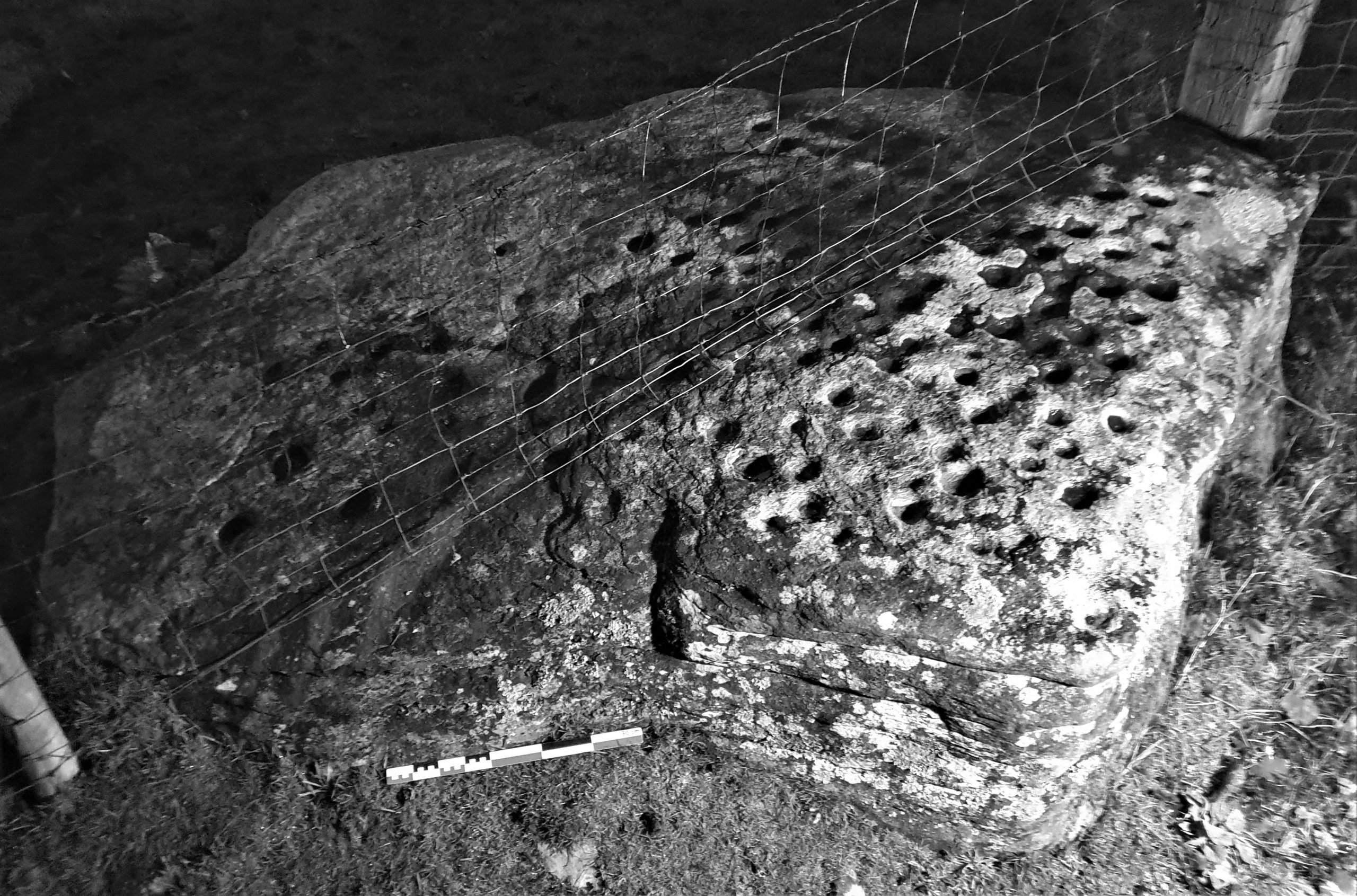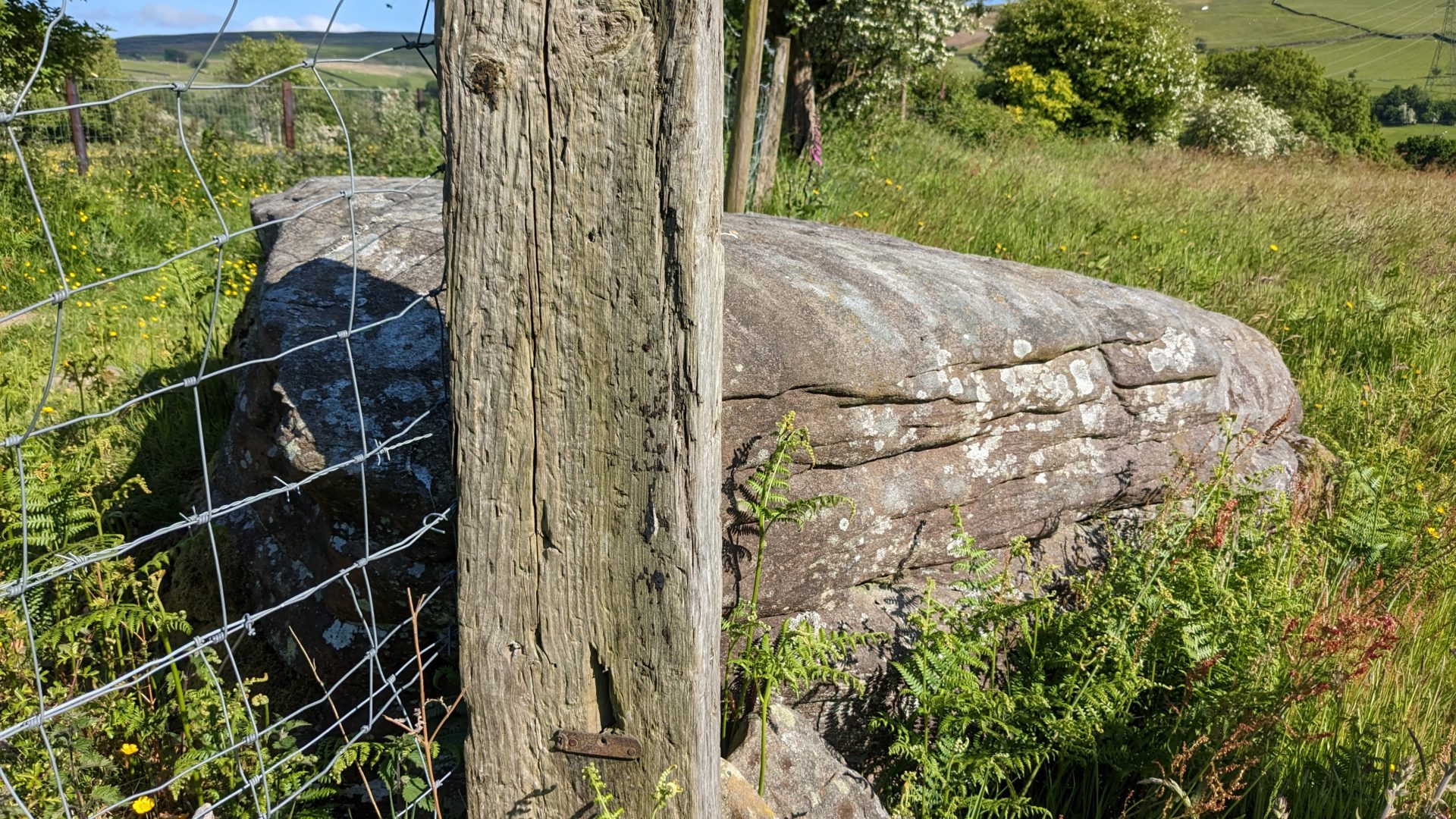14.08.2023
The Campaign for the Protection of Rural Wales (CPRW) – The Welsh Countryside Charity, is urgently calling on the Welsh Government to strike a balance between preserving our cultural landscape and historical treasures, and advancing renewable energy development in South Wales. CPRW recognises the importance of renewable energy in transitioning to a net-zero future, but also strongly emphasizes the need to protect the invaluable cultural and historical artefacts found on and around Eglwysilan Common on the Twyn Hywel proposal in the south Wales valleys.
Eglwysilan Common, nestled between Nelson and Senghenydd in Caerphilly, has captured the attention of renowned archaeologist and rock art specialist, Professor Nash (Geosciences Centre, University of Coimbra, Portugal and Department of Archaeology, Classics and Egyptology, University of Liverpool)), whose recent verification of a cup-marked stone at the boundary of the Twyn Hywel proposal in Llanfabon, underscores the historical significance of the area.
Professor George Nash, an esteemed expert in Welsh archaeology, shares his views on this delicate balance, stating, “The current archaeological assessment conducted by the wind developers at Twyn Hywel, Bute Energy, is inadequate to fully uncover and understand the historical potential of this common land.

“The cup-marked stone found at Tai’r waun Isaf could be the remains of a neolithic burial ritual monument or a significant meeting place or landscape marker. This may be associated with further rock art, fallen standing stones, cist burials and cairns of Late Neolithic or Early Bronze Age date found on Mynydd Eglwysilan, and other upland areas within the locality.
“This large block of stone with at least 90+ cupmarks on its upper surface, which was Scheduled in early 2023 by Cadw, should have been identified during an archaeology walkover survey, but was not.
“As an archaeologist, I am deeply committed to preserving our cultural heritage. At the same time, I recognize the global necessity of renewable energy for mitigating climate change and achieving a sustainable future.” said Nash.
While CPRW is deeply concerned about the potential loss of our country’s rich cultural heritage, we also acknowledge the urgency of transitioning to renewable energy to combat climate change.
Ross Evans, spokesperson for CPRW, states, “We stand at a crossroads where we must recognize both the importance of preserving our history and the pressing need to move towards renewable energy sources. The proposed development of 14 towering wind turbines, each standing at around 220 meters, the access roads and the thousands of tonnes of concrete needed raises significant concerns about potential archaeological loss. However, we also understand the imperative to transition to net zero to safeguard our environment for future generations.”
“CPRW calls upon the Welsh Government and Cadw to proceed with caution and responsibility in their decision-making process. We advocate for a comprehensive archaeological assessment that takes into account the significance of Twyn Hywel’s cultural heritage. This approach will help strike a balance between renewable energy development and preserving our valuable history.
Evans concludes, “We believe it is possible to find a balanced solution that embraces renewable energy while safeguarding our past. We urge all stakeholders to engage in a collaborative effort to ensure that Twyn Hywel is not only a site for sustainable energy but also a testament to the rich cultural heritage of Wales.”
CPRW remains committed to fostering meaningful dialogue and working collaboratively with all parties involved to find a way forward that upholds the importance of both preserving our history and advancing renewable energy initiatives.
-Ends-
Notes to editors:
Photo – the Cup-marked stone at Tai’r waun Isaf, Llanfabon which is literally on the border of the Twyn Hywel proposal.
DISCOVERY OF A CUPMARKED STONE – scheduling report by Prof George Nash
About CPRW – The Welsh Countryside Charity
The Campaign for the Protection of Rural Wales, now referred to as CPRW – The Welsh Countryside Charity, is a leading nonprofit organization dedicated to preserving and safeguarding the natural beauty, cultural heritage, and rural character of Wales. With a history spanning almost 100 years, CPRW remains committed to advocating for sustainable development that respects the environment and cultural richness of the Welsh countryside.
The Future Energy Grids for Wales report, that agrees with CPRW’s point about offshore wind can be found here: https://www.gov.wales/future-energy-grids-wales-reports
Our petition story can be found here: https://cprw.org.uk/cprw-petition-seeks-to-save-the-countryside/
A map illustrating the industrialisation of our countryside can be found here: https://cprw.org.uk/dns-map-launched-at-rwas/
[instagram-feed feed=1]


